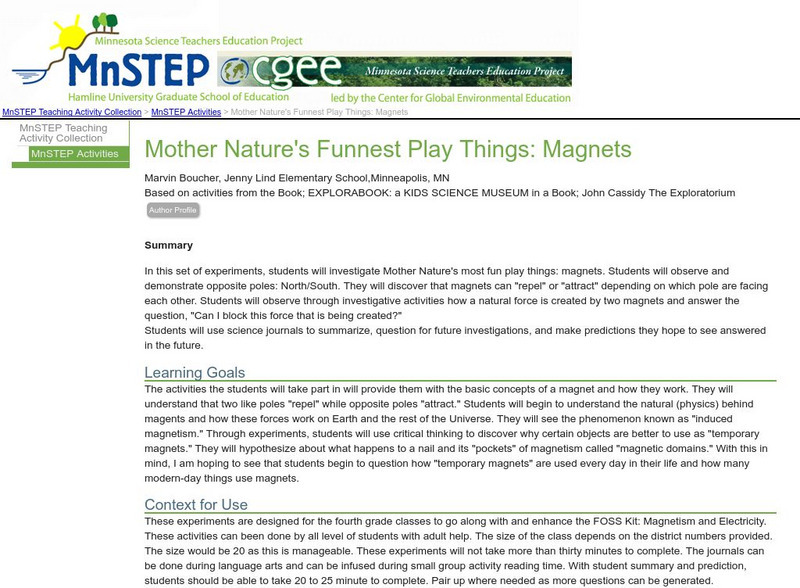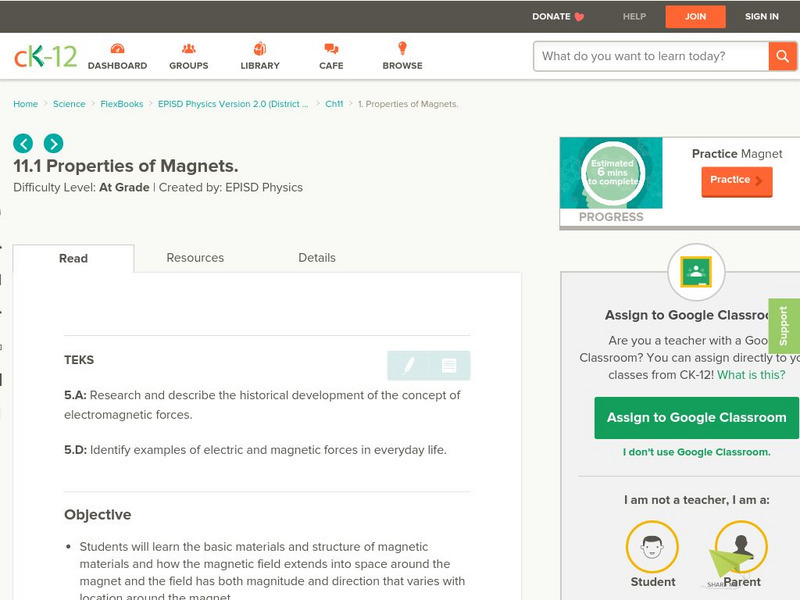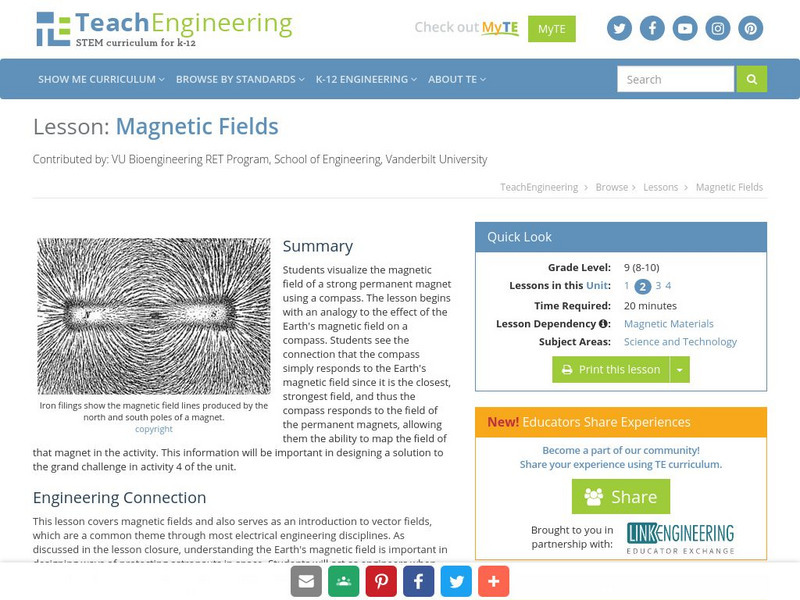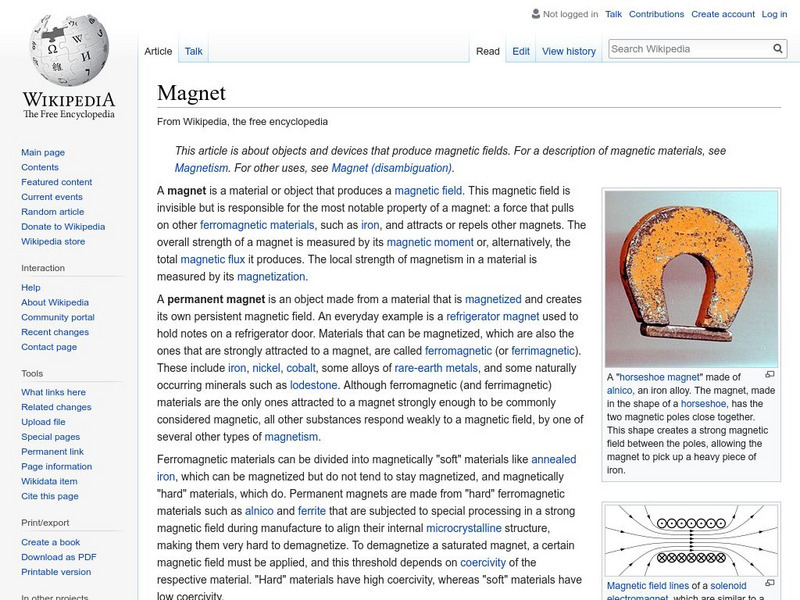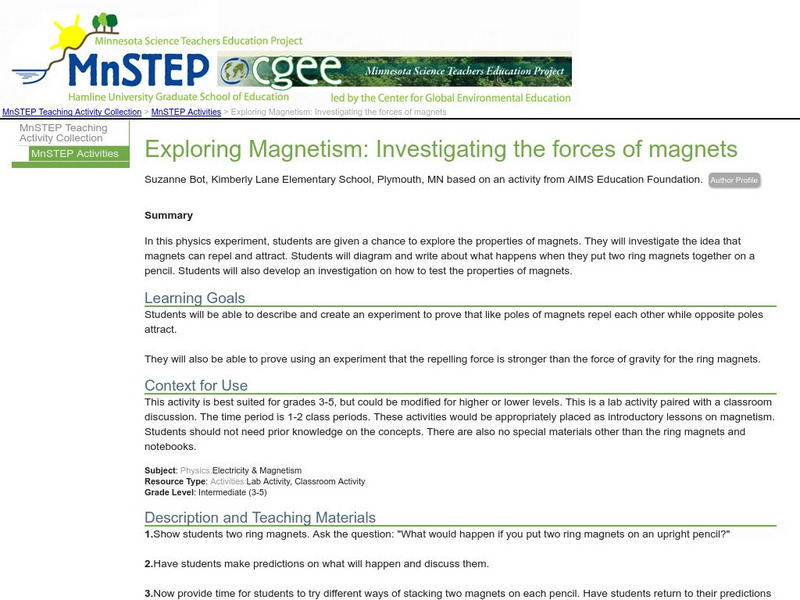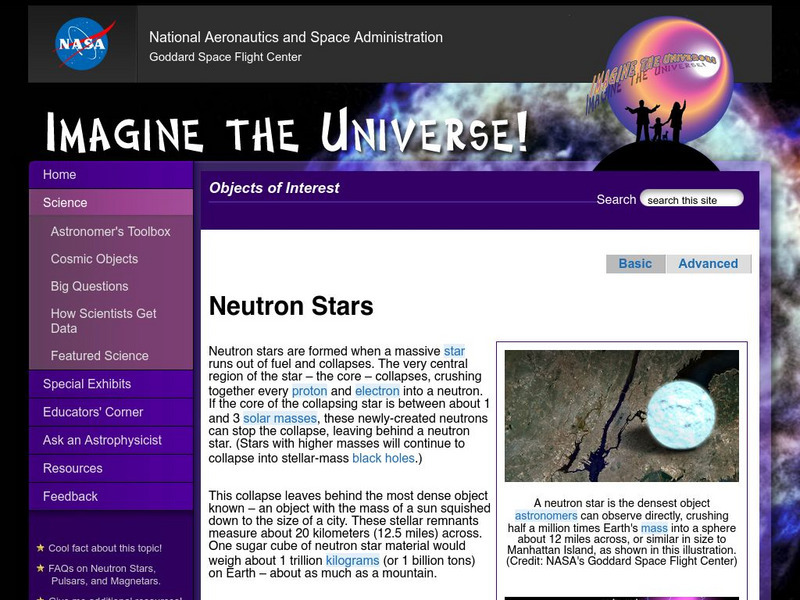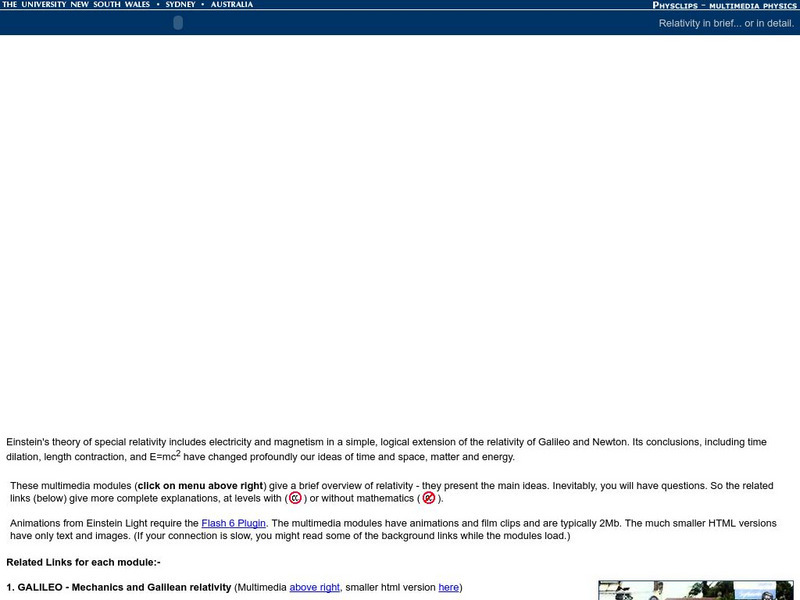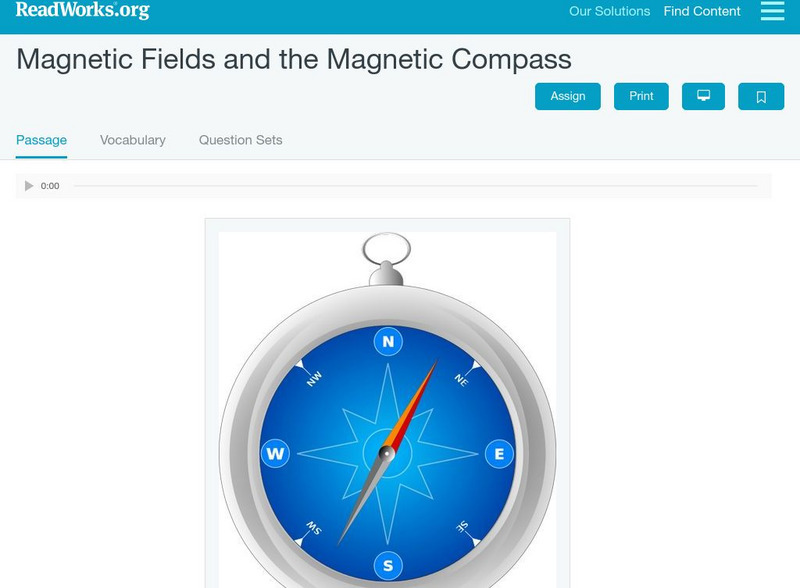Hi, what do you want to do?
Science Education Resource Center at Carleton College
Serc: Mother Nature's Funnest Play Things: Magnets
In this experiment, students will investigate magnets and how they work. They will understand that two like poles "repel" while opposite poles "attract." They will also observe how a natural force is created by two magnets and answer the...
CK-12 Foundation
Ck 12: Properties of Magnets
[Free Registration/Login may be required to access all resource tools.] Looks at magnetic materials and the structure and breadth of a magnetic field. The concept of magnetic domains is explained, and how they behave in a magnetic field....
TeachEngineering
Teach Engineering: Magnetic Attraction
Students complete a series of six short investigations involving magnets to learn more about their properties. Students also discuss engineering uses for magnets and brainstorm examples of magnets in use in their everyday lives.
Science Education Resource Center at Carleton College
Serc: Investigating With Magnets: Attraction and Repelling
In this fun lab activity, students will learn about the attraction and repulsion of magnets. Students will discover that like poles repel while unlike poles attract.
TeachEngineering
Teach Engineering: Magnetic Fields
Students visualize the magnetic field of a strong permanent magnet using a compass. The instructional activity begins with an analogy to the effect of the Earth's magnetic field on a compass. Students see the connection that the compass...
TeachEngineering
Teach Engineering: Drawing Magnetic Fields
Students use a compass and a permanent magnet to trace the magnetic field lines produced by the magnet. By positioning the compass in enough spots around the magnet, the overall magnet field will be evident from the collection of arrows...
Wikimedia
Wikipedia: Magnet
Wikipedia.com provides an excellent introductory site on magnets. Including basic information describing different types of magnets and their characteristics.
PBS
Pbs Learning Media: Magnets!
Learn about magnets, magnetic forces, and how magnets make things move.
CK-12 Foundation
Ck 12: Fifth Grade Science: Physical Science: Earth as a Magnet
[Free Registration/Login may be required to access all resource tools.] Looks at the Earth as a magnet and how Earth's magnetism benefits living things.
Science Struck
Science Struck: Fun and Interesting Facts About Magnets
Discusses some history of magnets, the science of magnetism, and interesting facts about them.
Alabama Learning Exchange
Alex: How Do Magnets Work?
During this lesson young scholars will examine magnets and determine that they have two poles (north and south). They will observe which poles attract and which poles repel.
NASA
Nasa: Magnetic Fields
This site from NASA provides a short, illustrated description of the basics of magnetic fields and magnetic poles.
Science Education Resource Center at Carleton College
Serc: Exploring Magnetism: Investigating the Forces of Magnets
Learners describe and create an experiment to prove that like poles of magnets repel each other while opposite poles attract. Using the experiment, they use the data to support the claim that the repelling force is stronger than the...
Alabama Learning Exchange
Alex: The Magnetic Maglev Train
This is a hands-on, inquiry-based instructional activity that includes three magnetic stations in which students or small groups rotate in order to test and discover different magnetic properties and then use their knowledge to build a...
CK-12 Foundation
Ck 12: Plix: Compass Poles: Earth's Magnetic Field
[Free Registration/Login Required] A site containing an animation of a compass and a short quiz over the topic.
E-learning for Kids
E Learning for Kids: Science: Alexandrian Lighthouse: What Are Properties of Magnets?
Learn about the properties of magnets, what metals are attracted to them, what magnetic poles do, and about repulsion and attraction.
NASA
Nasa: Imagine the Universe: Neutron Stars and Pulsars
Discover what neutron stars and pulsars are and view pictures of them. Includes links to additional resources and lesson plans.
ClassFlow
Class Flow: Magnets
[Free Registration/Login Required] This flipchart helps students differentiate between and identify objects that are attracted by a magnet and those that are not attracted by a magnet.
CK-12 Foundation
Ck 12: Physical Science: Earth as a Magnet
[Free Registration/Login may be required to access all resource tools.] Explains how Earth is a magnet, its geographic and magnetic poles, and its magnetic field.
National High Magnetic Field Laboratory
Magnet Academy: Timeline of Electricity and Magnetism: 600 Bc 1599
Find out how humans discovered the magnetic lodestone as well as the attracting properties of amber. Advanced societies, in particular the Chinese and the Europeans, exploited the properties of magnets in compasses, a tool that makes...
Other
Stanford University: Probing What You Can't See
Students will investigate magnetic forces and poles using a refrigerator magnet.
Learn Engineering
Learn Engineering: Understanding Rotating Magnetic Field & Synchronous Speed
Get information about rotating magnetic fields and how electric machines use them for their operation. Discusses synchronous speed and number of poles on an electrical machine. The accompanying article discusses the topics found in the...
University of New South Wales (Australia)
University of New South Wales: Einstein Light
Einstein Light highlights the Theory of Special Relativity and related topics. Learn how Galileo, Maxwell, and Einstein contributed to our knowledge of relativity, electricity, magnetism, and time by watching fun, interactive modules.
Read Works
Read Works: Electric and Magnetic Forces and the Modern Day Compass
[Free Registration/Login Required] An informational text about how a compass works using electromagnetic force. A question sheet is available to help students build skills in reading comprehension.





